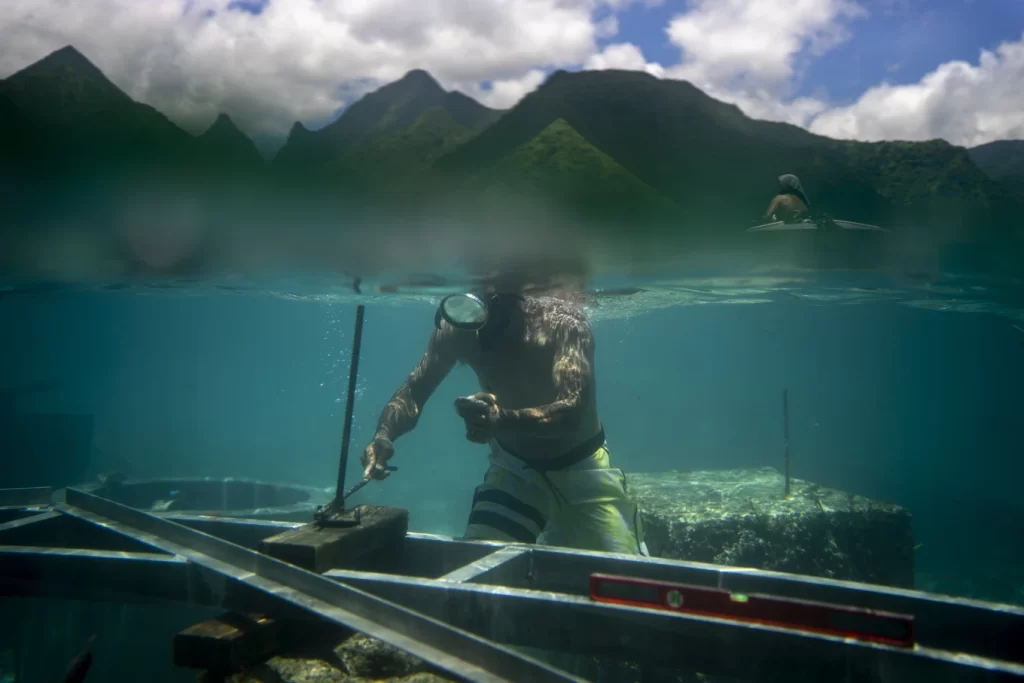
TEAHUPO’O, French Polynesia — Peva Levy said he felt a powerful, natural energy known as “mana” when he surfed Teahupo’o’s waves on a piece of plywood for the first time, rushing down a crumbling white surf in front of an untouched volcanic beach several years before the steady streams of surfers started arriving when the village got its first asphalt road over fifty years ago.
“It was a secret spot,” the surfer and Tahitian native remembered, as he stood on the pristine beaches of Teahupo’o on the island’s south side, waves crashing off in the distance. “But it was not a secret spot for a long time.”
Teahupo’o has since achieved world renown among surfers — the roaring wave garnered a reputation for its ferocious power — and will be home to the 2024 Paris Olympics surfing competition, scheduled from July 27 to Aug. 4.
The island in French Polynesia is an overseas territory of the European nation. The decision to host part of the Games here has thrust unprecedented challenges onto a small community that has long cherished and strives to protect a way of life more closely connected to wild lands and crystal-clear ocean than the fame promised by an Olympic stage. And while organizers are trying to adjust their plans to conserve the local environment, ensuring that the village of Teahupo’o stays a village is proving to be a struggle for locals.
The original proposed scale of the Olympic site – which called for new roads, housing units and even an aluminum judging tower that required drilling into the reef – caused a significant local backlash. Environmental and surf communities banded together to protect Teahupo’o’s culture, its corals and its marine life.
“It was too much for us, a big change. And it was just for, like, one week” of competition, Levy said, who’s also a member of the local environmental organization Vai Ara O Teahupo’o.
SEE SURFING AT TEAHUPO’O:
Though it’s known throughout the surfing world, there is not one surf shop in Teahupo’o, with the town forgoing most of the development that’s usually a staple at popular surf destinations. At the end of the village’s road lies its sole snack bar which is only open for lunch and serves fish caught that morning. Kids spend the afternoon surfing as families watch from the black sand beaches. At night, the distant roar of waves barreling down onto the reef lulls the town to sleep.
“We loved this place because it was still wild, there were not many people over here. There was a lot of fish all around, and that good mana,” Levy said.
In response to criticism, now 98% of Olympic housing will be within the homes of locals, with athletes accommodated on a cruise ship anchored nearby. The size of the judging tower has been scaled back and new infrastructure plans are being drawn up to minimize the need for new construction.
But concerns remain: Environmentalists and local fishers fear that drilling into the coral reef could attract ciguatera, a microscopic algae that infects fish and makes people sick if eaten, and many sustain themselves by what they catch in the ocean.
The sought-after shape of the waves could be affected, too, islanders say, if the reef were to fissure and lose the shape that the waves rely on to form.







